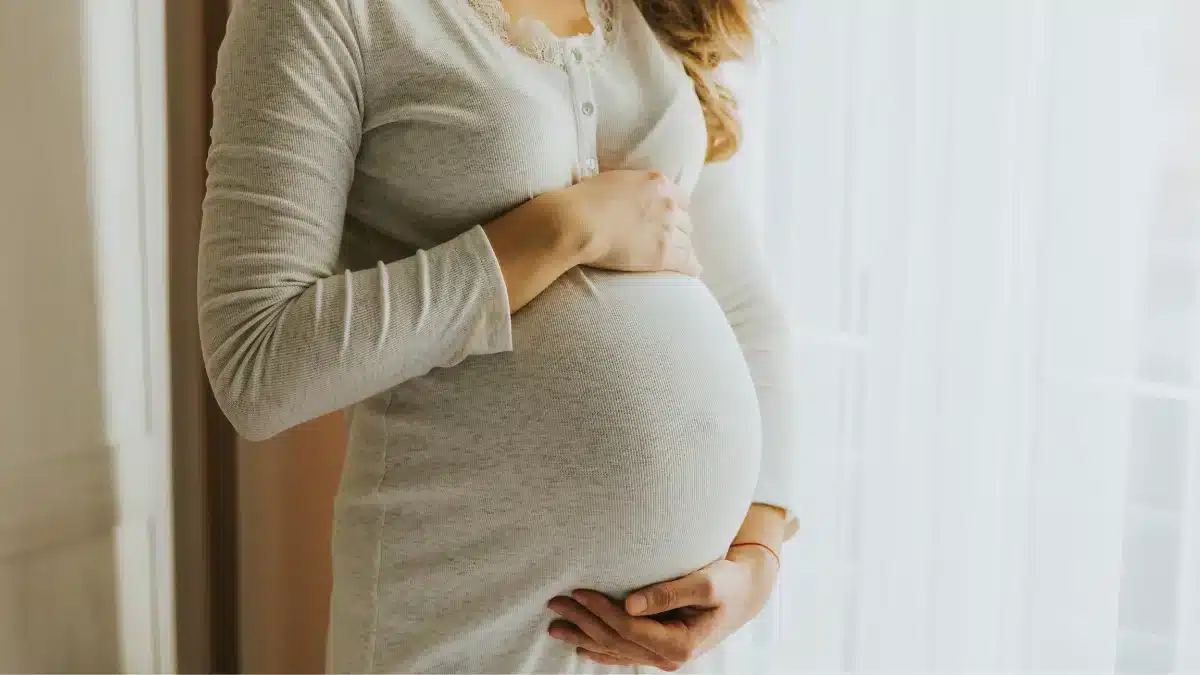Getting Pregnant with IUD: Symptoms, Risks, and Guidance
Every year, a small percentage of women using Intrauterine Devices (IUDs) find themselves unexpectedly pregnant.
About 1 in 1,000 women get pregnant while using an IUD.
Being pregnant with an Intrauterine Device can be a confusing and stressful experience.
An IUD is inserted in the body to prevent pregnancy, but if it moves from its place, it does not protect against pregnancy.
Such a pregnancy can be risky for the mother and baby.
Hence, it’s important to understand the risks and benefits.
This article provides information on what to expect regarding becoming pregnant with IUD and how to manage the pregnancy.
Chances of getting pregnant with IUD
While rare, it is possible to get pregnant with an IUD, especially if the device moves out of place or expires.
If a pregnancy occurs, it’s essential to seek medical attention to determine the type and location of the pregnancy and ensure the best course of action for the health of the individual.
Causes of pregnancy with IUD
Some common reasons for IUD failure include:
- Incorrect insertion: If the IUD is not placed correctly by the healthcare provider, it may not be as effective at preventing pregnancy
- Device expulsion or displacement: IUDs can get expelled or moved from the uterus, either partially or completely, which increases the risk of pregnancy.
- Device malfunction: If the IUD is damaged or has reached its expiration time, it may not be as effective at preventing pregnancy
- History of previous IUD expulsion: Women with a history of previous IUD expulsion are at a higher risk of IUD failure
- Uterine size: Women with smaller uteruses or atypically shaped or positioned uteruses may be more at risk for IUD failure due to a higher chance of expulsion
The Rare Risk of IUD Perforation: Its Causes, Symptoms, and More
Pregnancy symptoms with IUD

If an individual becomes pregnant while using an IUD, they may experience some typical pregnancy symptoms, such as:
- Missed periods
- Nausea and vomiting
- Sore and enlarged breasts
- Tiredness or fatigue
- Mild cramps
- Light spotting
However, some of these symptoms can also be similar to the side effects caused by an IUD insertion.
If someone is unsure what’s causing their symptoms, they must see a doctor or other healthcare provider for an evaluation..
Risks of IUD pregnancy
Pregnancy with an IUD carries several risks, including a higher chance of miscarriage, preterm birth, and infection of the amniotic sac and fluid (Chorioamnionitis).
If someone gets pregnant with an IUD, there is an increased risk of ectopic pregnancy, which is not viable and can be a medical emergency.
Therefore, such a pregnancy is generally not considered safe, and it’s crucial to seek medical attention if one suspects pregnancy while using an IUD.
What happens if you get pregnant with an IUD

If an individual suspects pregnancy, their healthcare provider will conduct tests and, if necessary, remove the IUD.
They will evaluate the pregnancy to ensure the best course of action for their health and well-being.
If someone is pregnant with an IUD, they have several options to consider.
These options include continuing the pregnancy and becoming a parent, giving up the baby for adoption, or terminating the pregnancy.
It’s important to take the time necessary to make the best decision.
They may want to attend counseling, talk to your healthcare provider, or seek support from family and friends.
There are also resources available, such as hotlines and support services, that can provide unbiased help and support for unplanned pregnancies.
Communicating with a healthcare provider and attending all your scheduled appointments is crucial to managing the pregnancy and making informed decisions.
Conclusion
IUDs can still fail, despite their greater than 99% success rate in preventing conception.
The failure rate of IUDs ranges from 0.3 to 2.3%, and the reasons for failure can include incorrect insertion, expulsion, or movement of the device.
If you experience pregnancy symptoms while using an IUD, such as missed periods, nausea, tender breasts, or unusual fatigue, it’s crucial to see your OB-GYN as soon as possible.
Additionally, if you notice heavy bleeding, severe pain, or the IUD strings are out of place, seek immediate medical attention.
If you become pregnant with an IUD, you’re more likely to have an ectopic pregnancy.
Your healthcare provider will conduct tests and, if necessary, remove the IUD and evaluate the pregnancy to ensure the best course of action for your health and well-being.
Frequently Asked Questions
Will a pregnancy test be positive with an IUD?
Yes, a pregnancy test can be positive with an IUD if you are pregnant. If you suspect pregnancy while using an IUD, consult a doctor to determine the type and location of the pregnancy and ensure the best course of action for you.
What do I do if I’m pregnant with an IUD?
If you’re pregnant with an IUD, seek medical attention promptly. Your doctor will confirm the pregnancy, remove the IUD, and assess the pregnancy’s type and location for the best course of action.
How common is pregnancy with an IUD?
Less than 1 in 100 women who use IUDs become pregnant within a year of starting to use one. In the event that a pregnancy does develop, there is a higher probability of an ectopic pregnancy, which can be fatal for both the mother and baby.
How would I know if I’m pregnant with IUD?
Pregnancy with an IUD may present typical pregnancy symptoms, such as missed periods, nausea, breast tenderness, fatigue, and mild cramping. If you suspect pregnancy, seek medical attention for confirmation and to discuss the next steps.
WowRx uses only high-quality sources while writing our articles. Please read our content information policy to know more about how we keep our content reliable and trustworthy.






